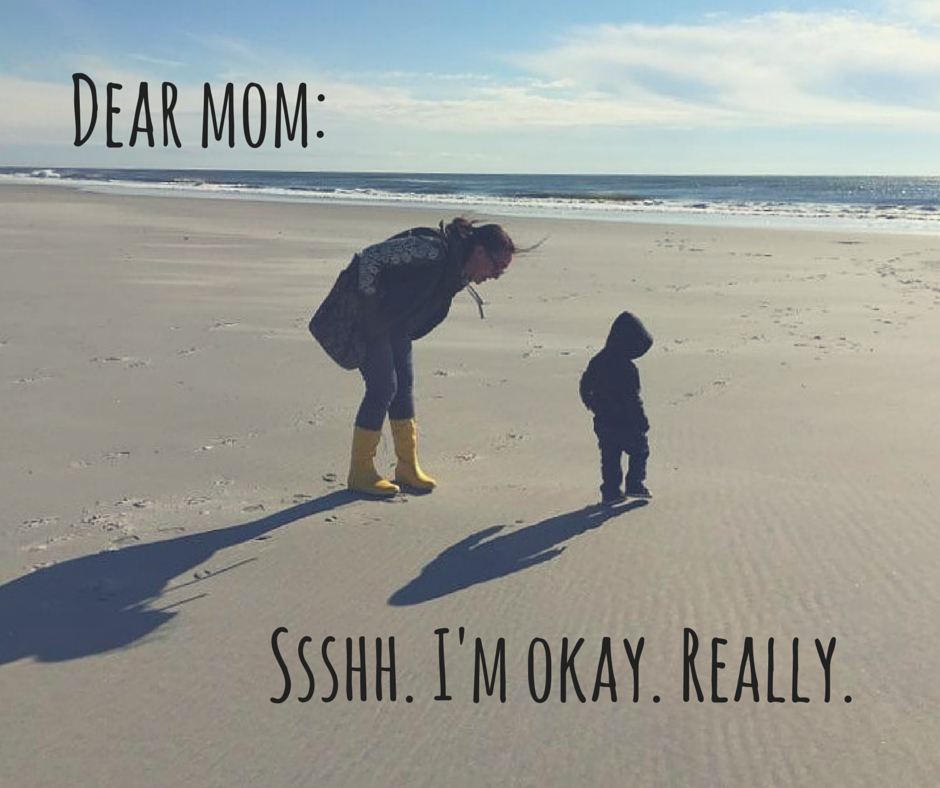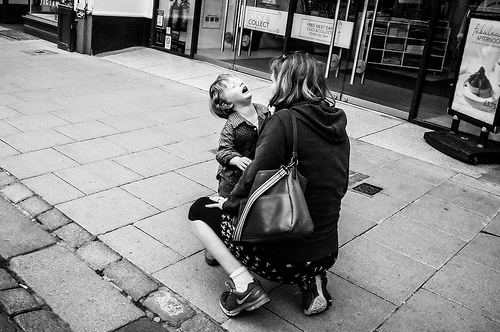The toughest, most persistent challenge in my parenting life might surprise you: it’s shutting my mouth.
If you don’t get what I’m saying, you may have found your own biggest challenge, too.
As parents, the most important thing you can do for your kids is spend more time with your mouth shut.
If you don’t believe me, give it a try. Spend a week trying not to intervene unless there’s real danger to life, limb, psyche (theirs), or property. Here are just a few reasons why.

Let them seize the opportunity
Okay, ADHD parents, let’s be real. It’s tough to watch kids figure stuff out. Watching my toddler try, over and over, to fit a lid onto a container or balance one toy on top of another drives me crazy.
My impatient, irritable ADHD brain is screaming, just grab it and do it for him!
The problem is, kids learn best from making mistakes and figuring things out on their own. When we jump in, we rob them of a learning opportunity. Do it too often and they learn to turn outward, not inward, when they need to solve a problem.
Constant butting in may even sabotage your relationship with your kiddos. “When people are placed in dependent positions,” write Elaine Mazlish and Adele Faber in How to Talk So Kids Will Listen & Listen So Kids Will Talk, “along with a small amount of gratitude they usually do experience feelings of helplessness, worthlessness, resentment, frustration, and anger.”
Sit on your hands if you have to, or use them to cover your mouth. Let your kids make mistakes, work at a snail’s pace, and (heaven forbid) do things differently than you might have done.
Foster emotional resilience


ADHD kids and families often struggle with emotions. Consider practicing what parenting expert Janet Lansbury calls “braving the silence.”
Many ADHD’ers seem to fear silence. We stop listening because we’re too eager for our turn to talk. We’re compelled to fill dead air with chatter.
Silence is critical to teaching your kids how to accept and manage their emotions. “Acknowledging our children’s feelings and desires is one of the most powerful ways to validate and bond with them,” Lansbury writes, “Yet all too often, we find it difficult to provide our kids with the crucial next step — the quiet moment they need for our acknowledgements to sink in, to really feel we accept their point of view.”
Think about this as you observe not just yourself, but other parents. How often do you see parents filling the silence, diminishing a child’s feelings, creating a distraction, offering magic advice?
The last thing any ADHD’er needs is more fuel for the fire. It may feel impossible, but practice being quiet. Let your child know you understand and accept their feelings, then back off. You might be amazed at what comes next.
Exit stage left


A few months ago, I noticed my role in a three-act potty drama my son was putting on several times per day. It went like this:
- R. clearly needs to use the potty.
- I tell him it’s up to him whether he pees or not, but it’s not okay to make everyone around him uncomfortable. He chooses not to use the potty. I escort him to his room (loud protestations ensue).
- R. uses the potty (in his room) and cheerfully calls for me. “I used the potty, Mommy!”
I assumed he’d learn that adhering to this simple social convention = participation in the group. When this scene began playing on repeat every day, it was time to reassess.
I decided to leave R. alone about the potty. To be clear, I knew he had the skills because he’d been using the potty successfully for several months. This was a power struggle, a way he could gain absolute control over my behavior and the sequence of events listed above.
The result? Tension around potty time dissipated and accidents never increased. Surprised? Consider these words from Vicki Hoefle’s Duct Tape Parenting:
The job of every parent is to adequately represent to their children what they can expect from the outside world if they behave in certain ways. Offering a full-time audience is not an adequate response to nonsense, cheap drama, or other such behaviors…We’re trying so hard to stop the chaos that we, in fact, set a stage for the behavior to continue!
Hoefle’s calls us to ask ourselves, “what would the world do?”
What would the world do? I like that. Usually, the answer is: not very much.
How do you feel about your level of engagement with your kids? Do you struggle to keep quiet, or do you feel you need to intervene more often than most?
Hey there! Are you enjoying The ADHD Homestead?
Here's the thing: I don't like ads. I don't want to sell your attention to an advertising service run by the world's biggest data mining company. I also value my integrity and my readers' trust above all, which means I accept very few sponsorships/partnerships.
So I'm asking for your support directly. For the cost of one cup of coffee, you can help keep this site unbiased and ad-free.
Below you will find two buttons. The first lets you join our crew of Patreon pals and pledge monthly support for my work. Patrons also have access to my Audioblogs podcast. The second takes you to a simple donation page to pledge one-time or recurring support for The ADHD Homestead, no frills, no strings. Do whichever feels best for you!

